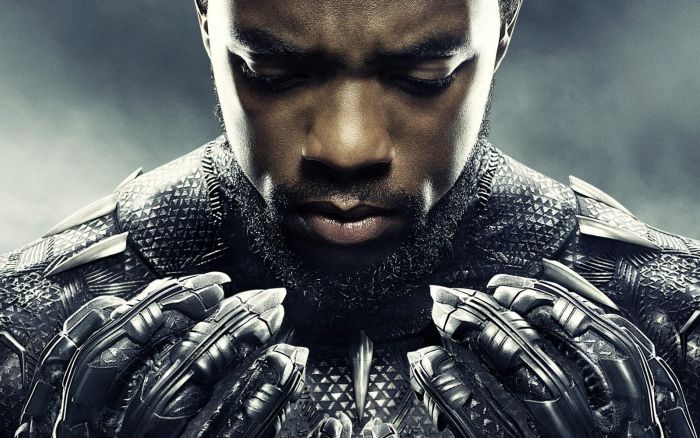Review Round-Up: Ryan Coogler’s Black Panther

To say that Black Panther has been highly anticipated would be a gross understatement. The character of T’Challa, ruler of the advanced and highly secretive African nation of Wakanda, made a splash when he was introduced in Captain America: Civil War. And his first standalone movie, directed by Ryan Coogler (Creed, Fruitvale Station), has only been growing in buzz, a large part of that due to the diversity represented by its production.
Reviews have been rolling in, and not only is it clear that Marvel has another hit on its hands (as of this writing, the movie’s already setting ticket presale records), but Black Panther is shaping up to be Marvel’s best-reviewed movie to date.
David Ehrlich, “Ryan Coogler Delivers the Best Marvel Movie So Far”:
It’s the first one of these films that flows with a genuine sense of culture and identity, memory and musicality. It’s the first one of these films that doesn’t merely reckon with power and subjugation in the abstract, but also gives those ideas actual weight by grafting them onto specific bodies and confronting the historical ways in which they’ve shaped our universe. Last, but certainly not least, it’s also the first black superhero movie since the dawn of the genre’s seemingly endless golden age (or at least since that one where Will Smith hurled a giant whale at a bunch of innocent sailors).
Stephanie Zacharek, “Black Panther Is Truly a Movie for Everyone”:
[M]ost blessedly, this is that rare superhero movie in which absolutely zero cities are destroyed, or are even in danger of being destroyed. At a certain point, a villain threatening to destroy a city becomes a ho-hum threat, and Black Panther knows it. The movie is smart, lavish and fun without being assaultive.
Peter Howell, “Black Panther isn’t just beautiful — it’s got brains to spare”:
Black Panther isn’t yet another blockbuster where mutant heroes fight a supernatural villain bent on blowing up the world and/or the galaxy for kicks. The main argument here concerns ideology: how people define duty and responsibility both within and without national borders.
Brandon Davis, “ ‘Black Panther’ Review: Women Carry The Throne”:
Black Panther does not reinvent super hero movies. A few of its scenes and plots feel a bit disjointed as a lot of ground is covered in its 135 minute run time, causing a few transitions to feel sudden or out of place. It serves as an incredibly important cultural message arriving at a crucial time, complete with stunning visuals, unforgettable and epic action-sequences, an inspirational arc for both the protagonist and antagonist, and it introduces a slew of new characters who may be a bit underused this time around but will have us crying out for a sequel.
Dave Schilling, “Marvel’s Most Ambitious, Visionary Film Ever”:
What are the sociological implications of a movie? What is the significance of the symbolism? Is the film uplifting the downtrodden or reinforcing stodgy norms? Some will blanch at the modern critic’s invocation of Malcolm X and Martin Luther King, or the nods to Ta-Nehisi Coates, but to do otherwise is to negate the power of film to inspire and to educate. Black Panther is the opening of a door wider than it has ever been — a blockbuster unashamed of its blackness, concerned with the feelings of that audience, but broad enough to let everyone into the party. In that sense, it’s a miracle.
Mark Hughes, “ ‘Black Panther’ Rules As Smart, Socially Powerful Superhero Cinema”:
Coogler’s work as both a director and a screenwriter is simply remarkable, and if you’ve seen [Fruitvale Station and Creed] then you know what it means when I say Black Panther continues that trend and delivers one of the most important, resonant, and powerful stories and narrative themes of any superhero picture to date.
Manohla Dargis, “ ‘Black Panther’ Shakes Up Marvel With Feeling and Flair”:
Race matters in ‘Black Panther’ and it matters deeply, not in terms of Manichaean good guys and bad but as a means to explore larger human concerns about the past, the present and the uses and abuses of power. That alone makes it more thoughtful about how the world works than a lot of mainstream movies, even if those ideas are interspersed with plenty of comic-book posturing. It wouldn’t be a Marvel production without manly skirmishes and digital avatars. Yet in its emphasis on black imagination, creation and liberation, the movie becomes an emblem of a past that was denied and a future that feels very present. And in doing so opens up its world, and yours, beautifully.
Though it’s already premiered, Black Panther officially opens on February 16. Watch the film’s trailer below.